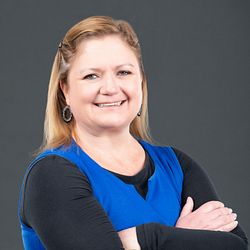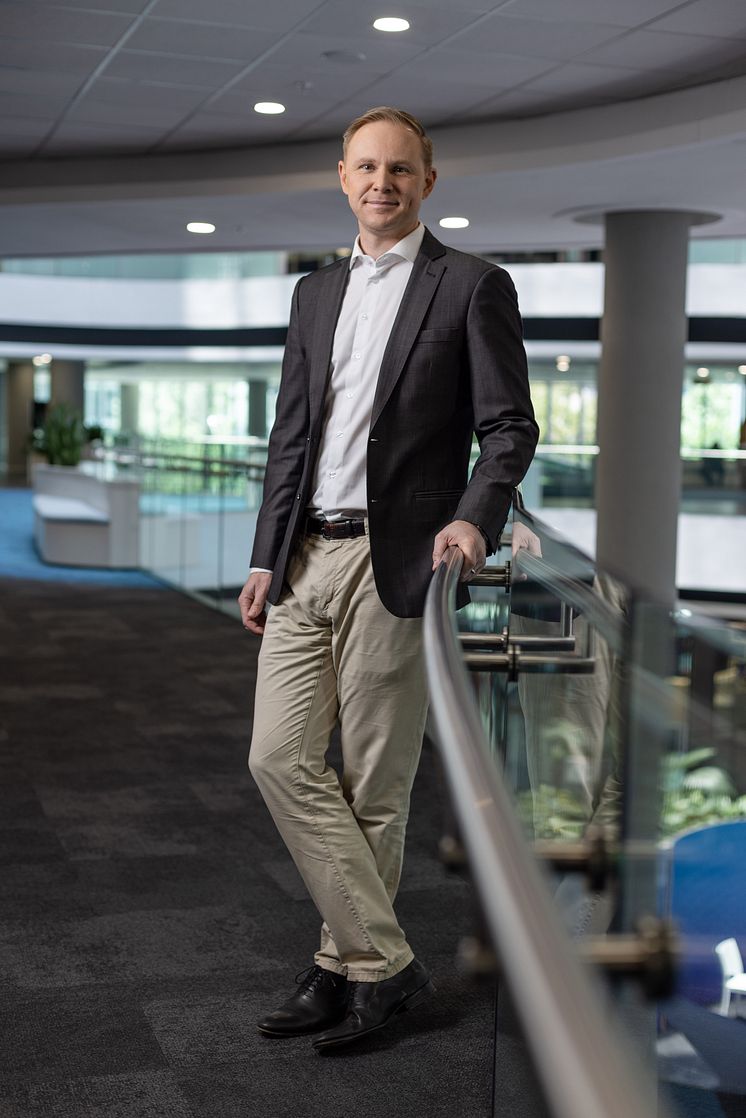
Press release -
There’s no turning back, make sure your provider can pay Two-Pot claims
With the President signing the Revenue Laws Amendment Bill into law on 1 June 2024, this means the signing of the Pension Funds Amendment Bill is imminent, and the Two-Pot retirement system is confirmed to roll out as proposed on 1 September 2024.
“This legislative action signifies the final step towards the implementation of this new retirement system and effectively means that effective from 1 June 2024 – there is no turning back,” says Guy Chennells, Chief Commercial Officer of Discovery Corporate and Employee Benefits. “With the new system officially coming into effect on 1 September 2024, retirement fund administrators in particular only have a few months left to organise their affairs, particularly regarding pending legal matters, if they want to pay out their clients’ withdrawal claims promptly post 1 September.”
Chennells emphasises that this is a crucial period for all providers to ensure they are fully prepared for the potentially unprecedented volumes of savings withdrawal requests coming their way from clients who may still be battling with financial woes in the aftermath of the COVID pandemic and the financial headwinds facing all South Africans.
What should providers be doing right now?
The first deadline of importance for retirement funds is 15 July 2024, which is the final date for all retirement funds to submit their rules amendments for registration if they are to be assured that their rules are registered and approved before 1 September. Retirement funds submitting rule amendments after 15 of July stand the risk of their rules amendments not being registered in time which will result in the delay of implementing Two-Pot and paying out savings withdrawal claims.
“Failure to register rule amendments for Two-Pot implementation with the Financial Services Conduct Authority (FSCA) by 1 September will mean no savings withdrawal claims can be paid from the Fund. This could also impact the tax approval status of retirement funds when the South African Revenue Services (SARS) does their annual tax assessments. If retirement funds lose their tax approval status, it will mean that contributions to retirement funds are then no longer tax deductible and employers could have an industrial relations disaster on their hands,” cautions Chennells.
The next important consideration is whether the provider can process claims on what is termed a ‘straight-through process’. Straight-through is an automated electronic payment process which does not need manual intervention.
“This is because the volumes are expected to be unprecedented. The Minister of Finance in his 2024 National Budget Speech said he is anticipating a massive R5 billion revenue wind fall from taxing Two-Pot withdrawals in the next financial year,” continues Chennells. “This number indicates that government expects many hundreds of thousands of South Africans to access money from their savings component as soon as the Two-Pot regulation becomes effective. One could easily see claims volumes in September 50 to 80 times higher than a normal month of exit claims. It would not be possible to increase staffing adequately for this. And so, without the straight-through process for payments, providers could have very long payment turnaround times before savings withdrawal claims can be paid.”
Many, if not most, employees will be making a withdrawal. If they have problems accessing their money, they will look to their employers for answers. This could result in very difficult labour relations issues for employers.
Chennells notes that while retirement funds and administrators have these milestones to meet, companies also need to tick a couple of boxes in order to ensure they’re ready for the Two-Pot system to kick in and ensure that their employees can get their withdrawal claims paid out if needed.
Below is a high-level list of what employers need to be doing already, or start doing right now:
- Drive tax compliance
- Maintain or update ID or passport and phone numbers
- Drive digital adoption
- Reassess your provider
- Communicate the basics
All companies need to ensure that their employees have tax numbers, which are included in the data they’ve shared with their retirement fund administrator.
Why?
“Employees will need to be registered for tax to make a withdrawal, even if they are below the tax thresholds,” adds Chennells. “This is because the South African Revenue Service (SARS) has confirmed that every withdrawal from the savings component will need a tax directive, and administrators will withhold marginal tax on each transaction.”
Employers must make sure that they regularly update employees’ cell phone numbers and also send these revised details to their retirement fund administrator every month. They should collect ID numbers for every employee. For foreigners, they must collect new passport numbers when old ones expire.
Why?
Chennells says that administrators will need to verify who is asking for a withdrawal.
“If an employer has incorrect ID or passport details, the process will stop and they will have to update those details through the next month’s contribution schedule, leading to serious delays. Phone numbers are just as important because they are the tool to deliver one-time passwords (OTPs) for members to confirm that they are the ones requesting a withdrawal,” he says.
He adds that the ID or Passport number shared with the administrator must be the same one used to register for one’s tax reference number. If they don’t match, unfortunately SARS will decline the directive application.
Employers can play a pivotal role in ensuring that retirement fund members know how to log in to their administrator’s digital platforms.
“We are expecting that members would need to use these digital platforms to request withdrawals,” Chennells explains. “Logging in for the first time can sometimes be a challenge (for example, if ID or passport and cellphone numbers are not up to date). So, it will be better to resolve this now than all at once come September.”
Why?
In the first month of the Two-Pot system’s implementation, volumes of withdrawals could be 50 to 80 times higher than current exiting member withdrawals. That means it will be impossible to manage these volumes manually without wait times of months for withdrawals. Administrators will have to develop digital straight through processes if they hope to deliver on member expectations.
Chennells cautions that whether you are an employer, or an individual invested in a retirement annuity fund or a preservation fund, if you have any doubt in your retirement fund administrator’s ability to get through the legal hoops and to deliver straight through claims processes, you still have time now to move in an orderly way to a more digitally and operationally capable retirement fund.
Why?
“Waiting until September to find out that you (or your employees in the case of employer-sponsored umbrella funds) are unable to get access to your money would be extremely frustrating. You would need to make a move in a hurry and once the trust damage has already been done,” he says.
The next question to ask is what would happen to people or companies who decide to change their providers if their Section 14 transfer is still in progress by 1 September.
A Section 14 transfer is the legal process that must be followed to move money from one retirement fund to another, ensuring that no mistakes are made along the way. It can take months to complete.
According to the FSCA for section 14 transfers that straddle the implementation date or are still being considered for approval by them on to 1 September 2024, the transferor fund that has member assets as at 31 August 2024 must calculate the seed capital for all members, irrespective of the status of the transfer, and must pay out savings withdrawal claims where they can. It may be a concern that the transferor fund may not want to pay out these claims, especially since the assets are moving off their platform, and this could prejudice members. It would be important to understand the capability and intention of the transferor fund and approach the FSCA for an expedited Section 14 process if the transferor fund will not be able to or would not be prepared to pay withdrawal claims within a reasonable time.
Chennells adds: “Of course if a fund is not able to pay claims for schemes awaiting transfer, they are likely to have heavy delays in paying withdrawal claims for active members too. Employers currently contributing to such a fund should consider moving sooner rather than later to at least give members some new contributions in the new fund from which to withdraw, and to have got the ball rolling to get members savings into a fund from which they can access the seed capital in a reasonable time.”
Employers need to be routinely communicating about the implementation of the Two-Pot system which becomes effective on 1 September 2024, and educating their employees about the basics of the new system. The most important message is to affirm to individuals that they will not lose their vested lump sum rights. So, there is nothing to fear.
Why?
“Retirement fund members may have heard a lot about 1 March 2024, and then March 2025 as implementation day in previous communications because the proposed implementation date changed a couple of times,” explains Chennells. “Now that the President has signed the Revenue Laws Amendment Bill into law (with the Pension Fund Amendment Bill signing now expected to be signed very soon), people need to know that 1 September is ‘D-day’. It will not change again. They need to get their affairs in order if they’d like to withdraw from their retirement funds, and this includes things like registering for tax if they are below the tax thresholds.”
Many people might still not be properly informed about all the basic rules that will govern the Two-Pot system.
Chennells outlines some of the detail regarding the new Two-Pot retirement system, to help employees to understand how the new system works:
- Everyone will start out in September with 10% of their retirement money up to a maximum of R30,000 available to withdraw (called “seeding capital”). Every separate retirement contract or policy you have will receive seeding capital up to the rand maximum.
- It is likely that retirement fund members will only be able to make withdrawals from mid-September 2024 and not from the 1 September official start date, as administrators will need time to do the seeding capital calculations and allocations and make sure that is all settled before confirming the amount available in the savings component.
- Everyone can make a withdrawal once a tax year, and retirement fund members will lose nothing by leaving their money in the fund until they really need it.
- Individuals need to remember that this money is intended for retirement. So, people should only take it if they have no alternatives – if their financial needs are urgent enough for them to truly need a boost in funds.
- The South African Revenue Services (SARS) will tax these withdrawals from retirement funds at every individual’s marginal tax rate. There will also be administration fees deducted before the net withdrawal amount is paid out.
- SARS may l claim any money a person owes them from these withdrawals before they get paid (IT88s). So, everyone should think twice before withdrawing if they owe SARS something.
- The rest of the money that retirement fund members have saved before 1 September 2024 will have the same rules apply as before – i.e. they can still access that money if they leave their employer in the future. This is never encouraged, but people should know that they do not need to resign before 1 September to access this money as it would still be accessible if they resigned at a later date after 1 September 2024.
- Provident fund members who were 55 or older on 1 March 2021 and who have not moved funds since then, will have an option to opt in to the Two-Pot system. They can opt-in before 1 September 2025 (they have 12 months to opt in). If they don’t convert to the Two-Pot system, all their future contributions will still be accessible as cash if they resign or retire. This only applies to provident fund member, not pension funds.
“In conclusion, the new Two-Pot retirement system is going to take some getting used to, from all stakeholders of retirement funds. It’s important to know your rights, know what you are entitled to access, and understand whether your administrators will be ready to support you and your needs come 1 September 2024. We urge everyone who has a retirement fund, to take time now to understand the new system, so that you can make the right decision for you – with a provider that is prepared and ready to assist when the time comes,” concludes Chennells.
Ends/.
Topics
Categories
Discovery information
About Discovery
Discovery Limited is a South African-founded financial services organisation that operates in the healthcare, life assurance, short-term insurance, banking, savings and investment and wellness markets. Since inception in 1992, Discovery has been guided by a clear core purpose – to make people healthier and to enhance and protect their lives. This has manifested in its globally recognised Vitality Shared-Value insurance model, active in over 40 markets with over 40 million members. The model is exported and scaled through the Global Vitality Network, an alliance of some of the largest insurers across key markets including AIA (Asia), Ping An (China), Generali (Europe), Sumitomo (Japan), John Hancock (US), Manulife (Canada) and Vitality Life & Health (UK, wholly owned). Discovery trades on the Johannesburg Securities Exchange as DSY.
Follow us on Twitter @Discovery_SA



